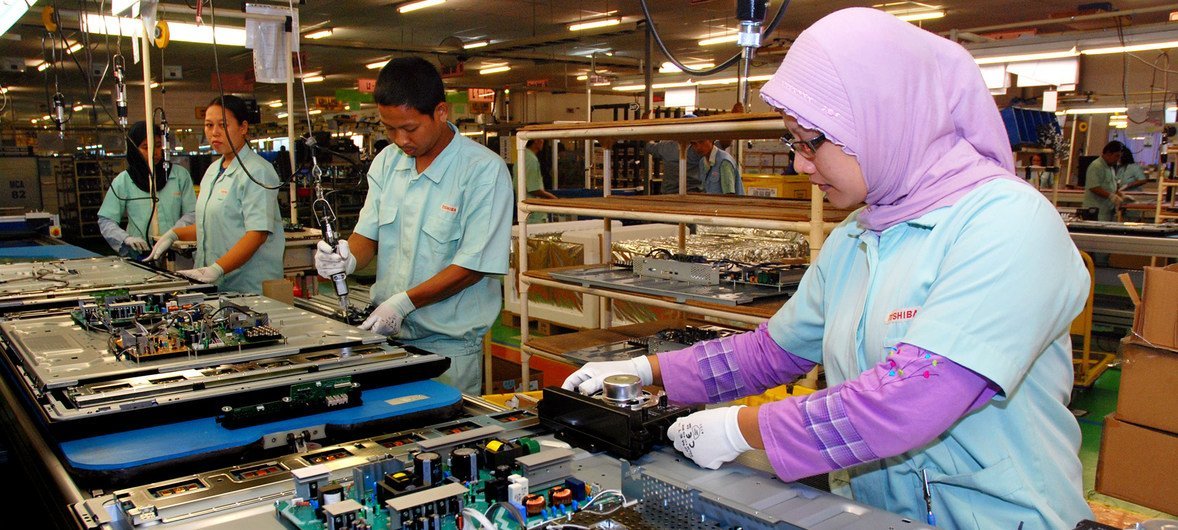China's manufacturing value added (MVA) growth has slowed from 6.2% in 2018 to 5.5% in 2019. Growth in manufacturing value added (MVA) in the U.S. fell from 3.2% in 2018 to 2% in 2019. Growth in manufacturing value added in Europe and other industrialized economies followed a similar trend.
Manufactured goods account for 80% of world merchandise trade, and the manufacturing sector faces the immediate impact of a slowdown in commodity flows due to trade frictions, mutual economic sanctions, uncertainty over Brexit and a deteriorating overall business environment, the report showed.
The slowdown in manufacturing in industrialized economies has in turn adversely affected manufacturing growth in developing and emerging economies – from 3.2% in 2018 to 2.0% in 2019.
The report shows that the global manufacturing sector is showing these declines just five years after the adoption of the 2030 Agenda and the Sustainable Development Goals. Contrary to SDG 9 's goal of significantly increasing the industrial sector's share of GDP and total employment, the share of manufacturing in industrialized and emerging industrial economies declined between 2010 and 2019.
During the same period, the share of manufacturing value added in the GDP of other developing and least developed countries increased slightly. However, the growth rates observed in developing countries to date have not been sufficient to meet the SDGs.

Data for the least developed countries shows that a handful of countries, including Bangladesh, Ethiopia and Myanmar, have made significant strides in expanding their manufacturing industries. However , many other least developed countries , especially in africa , are facing the possibility of " premature deindustrialization " as their manufacturing declines.
An analysis of sectoral data shows that China's auto production has surpassed that of the United States and Japan. China accounts for more than 25% of global auto production. Among other emerging economies, Mexico ranks fifth behind Germany and India ranks seventh after South Korea.
Compared with industrialized economies, workers in developing countries gain far less from employment in manufacturing. In Latin American countries, for example, the share of wages and salary of value added in value-added services ranges from 11% to 42%. By comparison, in Germany and other European countries, the figure could reach 45 percent.
UNIDO's Yearbook provides country-specific detailed business structure statistics that provide empirical evidence for industrial policy formulation and comparative analysis of structural change and productivity. The quarterly report provides an analysis of current growth trends in global manufacturing.

